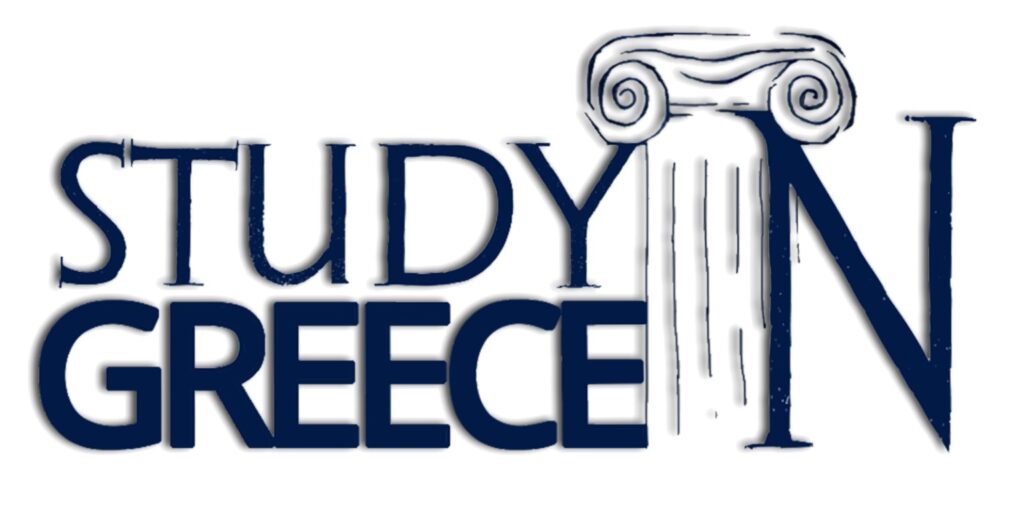Few people can argue that Greece stands at a crossroads of multiple civilizations, both geographically and culturally. This fact has historically inspired Greeks to innovate and ceaselessly try to create bridges of communication and exchange with peoples and cultures from around the world, thus cultivating a global, international identity.
As the landscape of higher education is changing and evolving worldwide, Greece has decided to employ this aptitude for internationality to join in this global academic tendency for internationalization, cooperation and mobility.
Thus, Study in Greece, the national organisation promoting the internationalisation of Greek public universities, was conceived and taken form. Founded in 2023 by the 24 higher education institutions of the country, under the auspices of the Ministries of Education, Religious Affairs and Sports, Foreign Affairs, Culture and Tourism, Study in Greece supports the internationalisation of public universities through the international promotion of their academic programs and to promote Greece as an educational destination for international students, in line with the current priorities of the Greek state and the universities themselves.
How Greek higher education thinks internationally
Believing the role of education should be reimagined to respond to key global issues we face today within an interconnected world, Greece decided to rethink its higher education by prioritizing internationalization. The Greek approach to internationalization emphasizes academic relations and cooperation, focusing on modernization and internationalization of the curricula and joint programming through the development of strategic partnerships and collaborations between Greek and foreign higher education institutions. Stakeholders in the field of higher education in Greece – including the Ministry of Education, Religious Affairs and Sports, the Greek Rectors’ Summit, and Study in Greece – realized the urgency for Greek universities to engage with the world, foster international collaborations and attract international talent, to bring bold, brave, and pioneering thinking to the most critical global challenges through academic excellence and cutting-edge research.
This strategic approach has yielded significant results: According to a survey conducted by Open Doors in 2024, Greece is among the 8 most popular study destinations for students from the U.S., with our country welcoming more than 6,000 students in study programs of all levels.

Examples of this type of collaboration have been abundant in these past few years, with Greek universities and Study in Greece establishing and maintaining meaningful contacts with renowned organizations focused on international higher education. These include Times Higher Education, QS World University Rankings, Keystone Education Group and Educations.com, Sinorbis, Etio and NET24, as well as similar national organizations like Campus France and DAAD. A landmark initiative is the International Academic Partnership Program (IAPP) Greece, launched in 2019 by the Ministry of Education, IIE, the U.S. Embassy, Study in Greece, and Fulbright Greece. IAPP promotes lasting U.S.-Greek collaborations in student mobility, research, and faculty exchange.
One of the great achievements for Study in Greece and Greek higher education in general these past few years has been the steadily increasing presence of Greek universities in the most substantial and influential international educational fairs, NAFSA and EAIE. This yearly participation has proven to be an invaluable boon for Greek higher education, as it has provided ample ground for fostering and developing collaborations between Greek and foreign institutions, as well as a great opportunity to gather knowledge and insight on good practices and how internationalization functions in the benefit of higher education in manifold ways.
Why should an international student choose Greece?
Greece features a significantly diverse and hospitable academic environment for international students: tuition fees for both undergraduate and postgraduate programs are surprisingly affordable, considering the academic level of studies that Greek university programs offer. To be more precise, an international student can attend a full 6 year program in Medicine with tuition as low as 12.000 € a year, or take up on one of the multitude of international tuition-free Master’s programs, such as Molecular Cellular Biology and Biotechnology or Advanced Physics.
Moreover, Greek universities are rapidly developing organizations that ceaselessly strive to raise the bar on academic excellence. For example, in the 2025 Times Higher Education rankings, in which more than 2.000 institutions are included, the National Kapodistrian University of Athens landed in 64th place globally in quality of education, equipping students with relevant skills and fostering effective learning outcomes that are essential for the future workforce. Also, the Athens University of Economics and Business achieved 83rd place in the Peace, Justice and Strong Institutions index, making their institution a haven for students seeking safety and transparency in the university’s actions. This level of affordability, coupled with the quality of education offered can be a great boon to any international student.
Apart from any academic benefit that Greek universities can provide, Greece is truly a unique study destination for a variety of other reasons. First of all, in line with the affordable tuition fees of university programs, living costs in Greek cities are quite lower than what one might find in other European cities or elsewhere. Students that meet specific financial requirements are entitled to free residence at the student dormitories and generally, monthly apartment rent can be between 250 to 600 €, with utilities costing approximately 100 € monthly. Since living expenses are generally low, students can live more comfortably in Greece, reaping the benefits of student life, which is exciting and vibrant. No one is ever bored in Athens, as the UK and Switzerland based Monocle Magazine points out, crowning the Greek capital as the city with the best and most diverse nightlife in the world.
However, student attractive activities are not limited to nighttime, as temperate and sunny weather is the standard for Greece. In addition, given the country’s relatively small size, trips and getaways all around can be short, simple and filled with meaningful experiences. In addition, Greece is characterized by many as the cradle of western civilization. Wherever one may go, they come across a piece of history and culture: finished a class at the University of Crete? The Minoan palace of Knossos is a 45 minute bus ride away. Studying at the Aristotle University of Thessaloniki? The archaeological site of Vergina isn’t far. Not to mention the countless opportunities one has in Athens that are a walk or subway ride away. But you don’t need to go far to experience culture. The universities themselves feature a multitude of student sport and culture clubs that forge bonds between students, reinforced by the strong sense of community that is inherent in Greek universities and culture in general.
Studying in Greece and Greek Diaspora: reacquaintance or remembrance?
It is no secret that Greece is a country with a tumultuous past. From years of dictatorship, to years of financial crises, Greeks have left their homes behind and settled in other countries in search of a better life. Many of them graduates of Greek universities, they stood out for their distinguished performance in their professional field. However, the bonds that these expats share with their homeland are invaluable, forming strong communities that honour their heritage with every given opportunity.
Greece is growing increasingly aware of the importance that the Diaspora holds in terms of cultural capital and is reinforcing ties with expatriate communities with a structured, four-year plan (2024-2027) conceptualized by the Hellenic Ministry of Foreign Affairs, titled “Strategic Plan for Greeks Abroad”, in close collaboration with consulatory authorities abroad. The objective of this initiative is to raise awareness about the value of Greek higher education, on which many Greeks of the Diaspora built upon to realize their aspirations abroad. This includes, among others, “Open Days” for study programs of Greek universities, tailored to the needs and interests of students of the Diaspora and establishing contacts with Greek speaking schools abroad.
But why should a Greek of the Diaspora travel or return to Greece to pursue their studies? First of all, if one reason could be described in one word, “nostos”. The intense longing for someone to return home. The aforementioned ties to the cultural heritage of Greece is a substantial reason for someone to want to reconnect with their roots and reaffirm their origins, to get in closer contact with cultural stimuli that they have always had, refresh their language skills in Greek or experience life in Greece as they remember it or for the first time. Also, a great deal of time has transpired since the expatriation of many Diaspora Greeks, and the country is no longer in a state of political or financial disarray. Quite the contrary, growth seems to be steady and shows no signs of slowing down, making this an opportune time for Diaspora Greeks to attempt to return to their homeland. In a more practical view, Greeks of the Diaspora who are able to speak Greek are, under certain circumstances, eligible to apply for Greek-taught Bachelors programs, which are entirely tuition-free, or explore the wide variety of Master’s programs in Greek as well, offered with little to no tuition, making studies in Greece all the more affordable.
Greece: a global hub of education
Every step towards internationalization yields significant results for the evolution of Greek higher education. Through strategic partnerships, creation of international programs, and the exchange of insights on good internationalization practices, Greek institutions are swiftly and deftly adapting to the global academic scenery.
More importantly, Greek higher education is steadily gaining momentum on the global stage, emerging as a competitive and influential academic hub. By fostering international collaborations, it offers students from around the world the opportunity to discover Greek higher education as it truly is – a transformative journey where academic excellence goes hand in hand with rich and unique life experiences.












